What happens when faculty members — many of whom have devoted their entire professional careers to Johns Hopkins Medicine — decide to retire?
Cynthia Rand, senior associate dean for faculty and professor of medicine, describes a conversation she had some years ago with a revered faculty member who had just retired. “He had been an influential leader for 40 years, and suddenly, he felt irrelevant,” she recalls. “I thought: There has to be a way to keep long-time faculty connected after they retire — with each other and with Johns Hopkins — and to tap into their wisdom and experience to benefit students, patients and Johns Hopkins through teaching and mentoring.”
The Academy at Johns Hopkins, East Baltimore Campus, which she helped launch in 2018 and now has more than 140 members, does just that. “The retirees who participate have intellectual stamina; they are still gung-ho about their medical or scientific discipline and about engaging with their community,” says Rand. “Why in the world wouldn’t we want to harness that brain trust — of people who love Johns Hopkins and care about making a difference in the world?”
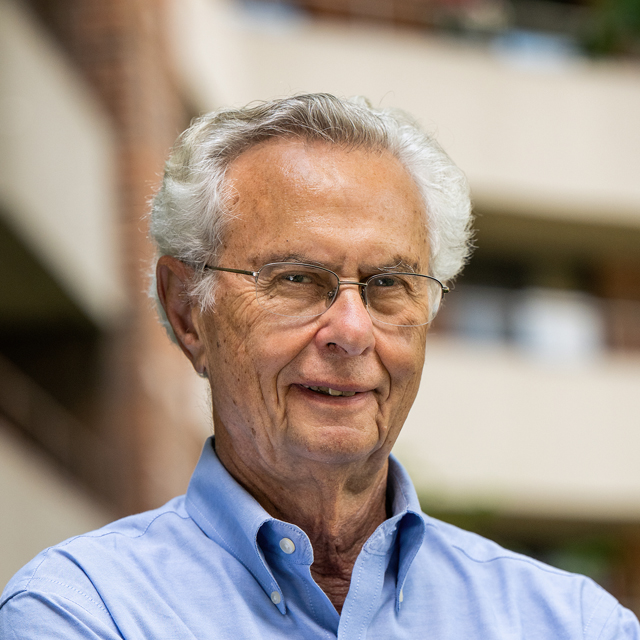
Still Putting in the Hours
Mike Weisfeldt ’65 was part of the senior faculty advisory board that helped conceive the Academy to which he now belongs. The former chair of the Department of Medicine is now serving as a trusted consultant to Johns Hopkins Technology Ventures (JHTV), reviewing the medical basis and feasibility of its breakthrough technologies. (JHTV has launched more than 170 commercial ventures since its founding in 2014.)
“Roughly 70% of the applications for early funding are by medical faculty — and I read every one,” the cardiologist says. “We have practice sessions, we have feedback sessions, we grade them and we ultimately give about six to eight awards per year in three groups. And we have follow-up with finalists who are successful.” Last year, he says, he “very easily put in at least 90 hours” to this work with JHTV.
And that’s not the only role that he serves with the Academy. Since retiring in 2018, the physician-scientist-leader has remained on the school of medicine’s speed dial for mentoring, coaching and advising. “I’m still available to leadership about how to face faculty and administrative issues,” says Weisfeldt, recipient of the Dean’s Distinguished Mentoring Award in 2019.
“A typical area I get involved in is talking with leaders in units of departments that have to work together. Sometimes individual people are asked by the Dean’s Office to call me — or by the dean himself. Those individual mentoring and coaching efforts can become rather significant: hourlong meetings every two weeks for a couple of months, and then every two months for a year.”
Once COVID-19 restrictions allow, he looks forward to gathering again in the program’s Welch Library home.
“Before COVID, the face-to-face camaraderie that was part of the monthly luncheon and lectures series really [coalesced] a core group of people together,” he notes. “I think the Academy will have another rebirth with more in-person activities resuming.”
After stepping down as chair of the Department of Medicine in 2014, he spent the next four years as a full-time member of the faculty, continuing to chair an international research network conducting trials of therapies for out-of-hospital cardiac arrest and severe traumatic injuries. He worked to help the Fund for Johns Hopkins Medicine, but then transferred that time to Johns Hopkins Technology Ventures until fully retiring in 2018.
“I prepared for it,” Weisfeldt says. “I planned ahead, got involved in new activities and figured out things that I would enjoy doing — well before the time I actually retired.”
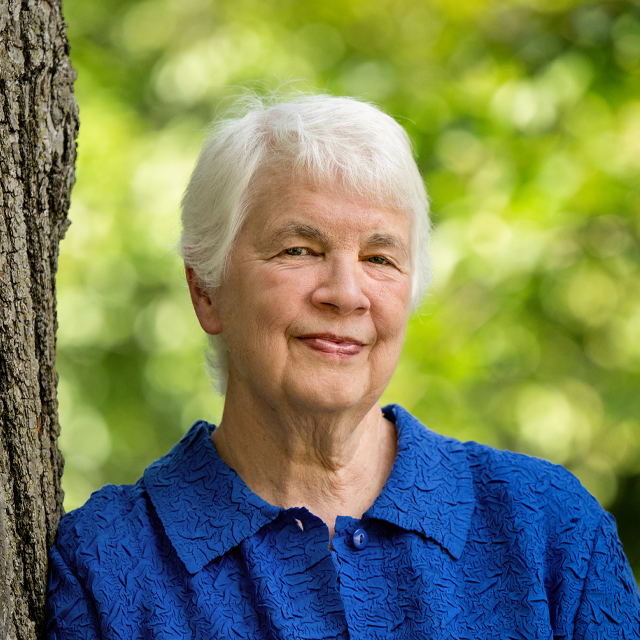
Finding a New Focus
Ginny Corson came to Johns Hopkins in 1975 as the institution’s first genetics counselor. Now she is serving an inaugural position as co-chair of the Academy’s volunteer committee, promoting opportunities to aid underserved residents of East Baltimore — a post she’s held since soon after the Academy’s launch.
For the past year, Corson has helped sort food delivered to the Harriet Lane Clinic from the Maryland Food Bank. Breakfast and lunch for a family of four goes into one bag, dinner into a second — roughly 200 bags each time.
“The project started about the beginning of the pandemic,” she says. “Once we felt more comfortable volunteering in person, a group from the volunteering committee, as well as other Academy members, started showing up for bagging event days every six to eight weeks. We feel it’s a great project to help the families in East Baltimore.”
The biggest outreach project for her committee, and for the Academy as a whole, has been fundraising for the Henderson-Hopkins School, a Johns Hopkins partnership school serving students pre-kindergarten through eighth grade in East Baltimore. At the beginning of the pandemic, Academy members raised $25,000 for the “drive-by Friday” food drive sponsored by the school. In addition, Academy members volunteered making appointments and assisting at the vaccine clinics held at the school, which has become an anchor for the neighborhood north of The Johns Hopkins Hospital.
During her career as an associate professor of gynecology and obstetrics, Corson worked in the pediatric genetics clinic and then moved to the prenatal diagnostic center in the Department of Gynecology & Obstetrics, where she remained until her retirement in 2018.
She says she was delighted when the Academy leadership tapped her and retired Johns Hopkins cytopathologist Dotty Rosenthal to co-chair the volunteering committee. It seemed a good way to continue her involvement with Johns Hopkins and the community of patients she had been helping for the past 43 years.
The Academy also broadened her connections.
“I knew a few people from pediatrics, but I didn’t know most of the people who are in the Academy activities I’m involved in now,” Corson says. “It’s been quite fun having these new relationships.
“Some people, like myself, retire cold turkey. There was one day when I stopped working and I was done. Other people transition to retirement. Getting involved with the Academy during that process may be a great way to continue those contacts and find a new focus, whether that’s continuing one’s mentoring or one’s teaching, or starting new volunteering activities.”
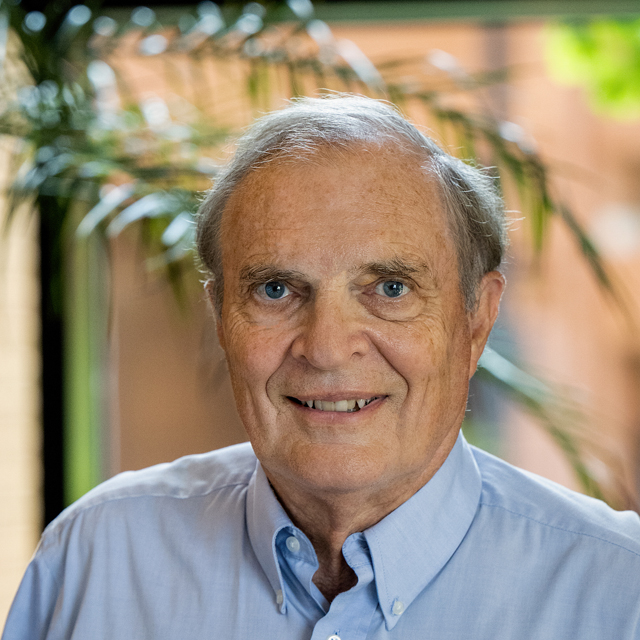
A Passion for Mentoring
When Dave Kern began serving as co-director of the Academy’s mentoring and coaching committee in 2019, he discovered that this new volunteer role also offered an opportunity for scholarship.
Before long, the emeritus professor of medicine and his co-chair, Janet Serwint, emeritus professor of pediatrics, with input from other committee members, had researched and created a reference guide for Johns Hopkins Medicine that presented the 10 best practices of mentoring and coaching, as well as tips for finding mentors and developing effective mentor-mentee relationships. Recently, they added a document on coaching.
Kern and Serwint also assembled a directory of 41 Academy members ready to serve as mentors, along with the areas in which they feel most qualified to advise or coach.
“Mentoring has been a passion for me for a long time,” notes Kern, who served for 25 years as co-director, then director of the Division of General Internal Medicine at Johns Hopkins Bayview Medical Center. “Janet and I feel that what we’ve created for the Academy promotes the best standards in mentoring and coaching.”
After gradually scaling down his full-time workload, Kern fully retired on July 1. In addition to his mentoring work for the Academy, he led an inpatient team for four weeks annually on the patient-centered Aliki service at Johns Hopkins Bayview until 2021.
The professor emeritus says that when he began his own career, few junior faculty had mentors. “Everybody from residents to fellows to junior faculty — even midlevel and senior faculty — need them,” he says. “And they don’t just need a mentor, they probably need a team of people with experience in areas that mentees want to develop in order to provide networking, sponsorship and just to listen to them.”
His committee has helped organize special sessions for Academy members on how mentoring needs are changing. Sherita Golden, vice president and chief diversity officer for Johns Hopkins Medicine, Rachel Levine, associate dean for faculty educational development, and others have provided perspective on recognizing and understanding issues and barriers for junior faculty members, especially those who are underrepresented minorities.
“Our Academy mentors provide around 3,500 hours of mentoring a year to faculty and trainees at Johns Hopkins and beyond,” he says. “It coincides with a huge cultural change at Hopkins of moving from a competitive to a collaborative environment. And it’s an opportunity for retired faculty members, who are tremendously talented, to share their expertise.”
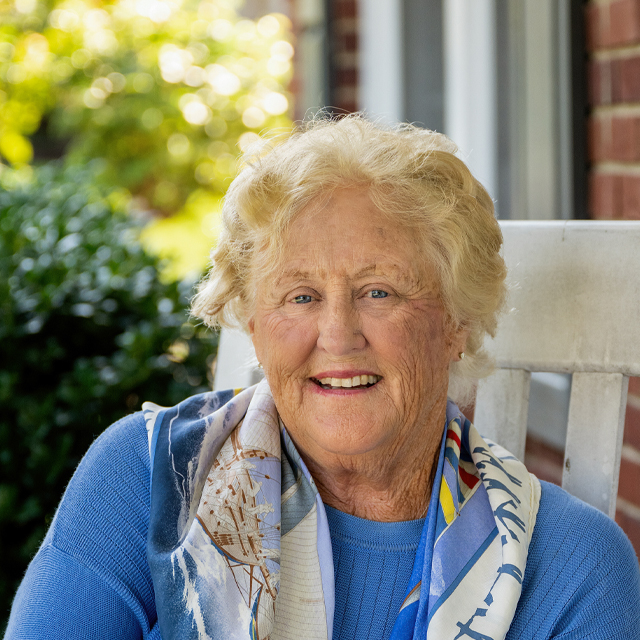
Always a ‘Mover’
As the only member of the Academy at the Johns Hopkins East Baltimore campus who is both a nurse and an attorney, Meg Garrett provides a perspective on many topics that differs from those of her physician counterparts.
Garrett, who retired in 2019 as vice president of risk management and chief legal counsel for the Johns Hopkins Health System, became curious about the Academy at the retirement party commemorating her 33 years of service. “Bill Baumgartner [long-time chief of cardiac surgery] came up to me and said, ‘Meg, you should be a member of the Academy,’” she recalls. “I’m the only member of the legal department who ever had a faculty position.”
Her application was accepted within a week.
Over the past few years, Garrett has enjoyed better getting to know many of the people she worked with as a legal counselor. “We already had a genuine mutual respect for one another, and now it’s great to be a member of the same team in the academic world,” she says. “Coming from the health system side of Hopkins, I’m understanding things that I never did before — such as how to progress in academia — so that I can mentor and help our faculty move forward.”
During her career, Garrett estimates she mentored several hundred nursing and law students from around the region. Soon after joining the Academy, she began meeting every week with a member of the pediatrics faculty, who she says has “made great progress,” and she looks forward to similar coaching sessions.
As a volunteer, she has participated in food drives at the Henderson-Hopkins School, and, as a board member for Healthcare for the Homeless, she hopes to interest other Academy members in that charitable work.
Meanwhile, retirement continues to present new opportunities. “I’ve always been a ‘mover,’” says Garrett, who lectures on legal and safety issues of health care to audiences including the American Hospital Association, veterans’ groups, and the Johns Hopkins University School of Nursing, where she still serves as adjunct faculty.
“Now I’m doing a lot of stuff without having the responsibility of a huge staff. COVID slowed me down only in the sense that I couldn’t travel as much. But I still put 22,000 miles on my car!
“I loved Hopkins, and I still love Hopkins. You don’t spend a large part of your life there without feeling a commitment to it. My whole mission was to help improve quality and safety not only at Hopkins, but across the country — and that’s still my goal.”
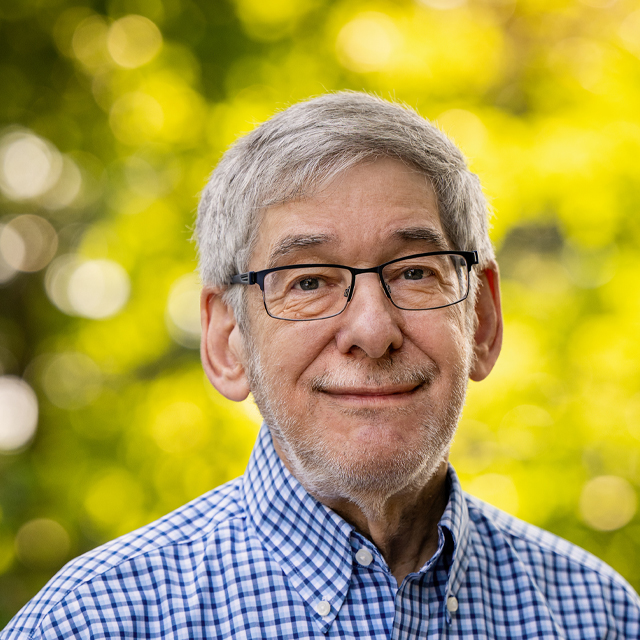
Finding Camaraderie
Kidney transplant specialist Ed Kraus continued working “60 to 100 hours a week” until he reached age 69. At that point, after joining the Academy, he stepped back his work responsibilities to 60%, then 50%, then 40% as part of the transition-to-retirement program designed for senior school of medicine faculty.
During the COVID-19 pandemic, Kraus continued to chair the Johns Hopkins abdominal transplant quality improvement committee — work he hopes to continue — and saw patients two days a week, providing follow-up for kidney and pancreas transplant recipients and evaluation and counseling for those seeking transplantation.
Now fully retired at age 73, the nephrologist remains active in an international work group evaluating and classifying studies on kidney transplant rejections. He says he and his colleagues have just finished an article, soon to be published, that frames questions “we hope will lead to standardization of protocols and metrics and promote collaborative multi-institutional and global collaborative studies.”
Meanwhile, he also continues his own research: examining factors that affect the long-term outcomes of kidney transplant recipients and barriers to accessing care for minority recipients.
“I still have very strong interest in the work I’ve done all these years,” Kraus says. “But I’ve also been able to add things that I’ve always wanted to do.”
That includes his Academy work mentoring faculty members. “I’m available to help those who are trying to understand the [new] clinical pathway to promotion — because I lived it,” he says. “I was promoted before that pathway existed … I’m a bedside clinician. I never had a leadership position, per se. I’ve just been a working stiff at the bedside.”
Kraus also volunteers in the East Baltimore community with other Academy members, helping out with food drives at the Harriet Lane Clinic and the Henderson-Hopkins School, and looking into opportunities to volunteer his clinical skills.
He says he enjoys learning more about his colleagues in the Academy through community work, discussions after lectures and social outings, such as hikes.
“One of the most important things about the Academy for me is getting to know people with long, rich careers who I didn’t know personally at all,” he says. “Now I’m able to interact with them on a very casual, supportive basis. It gives me a great sense of camaraderie.”
